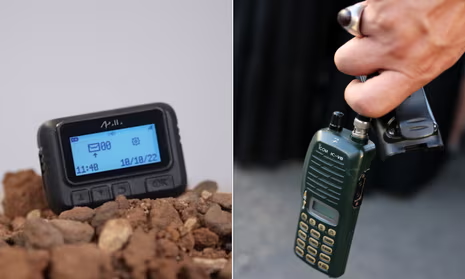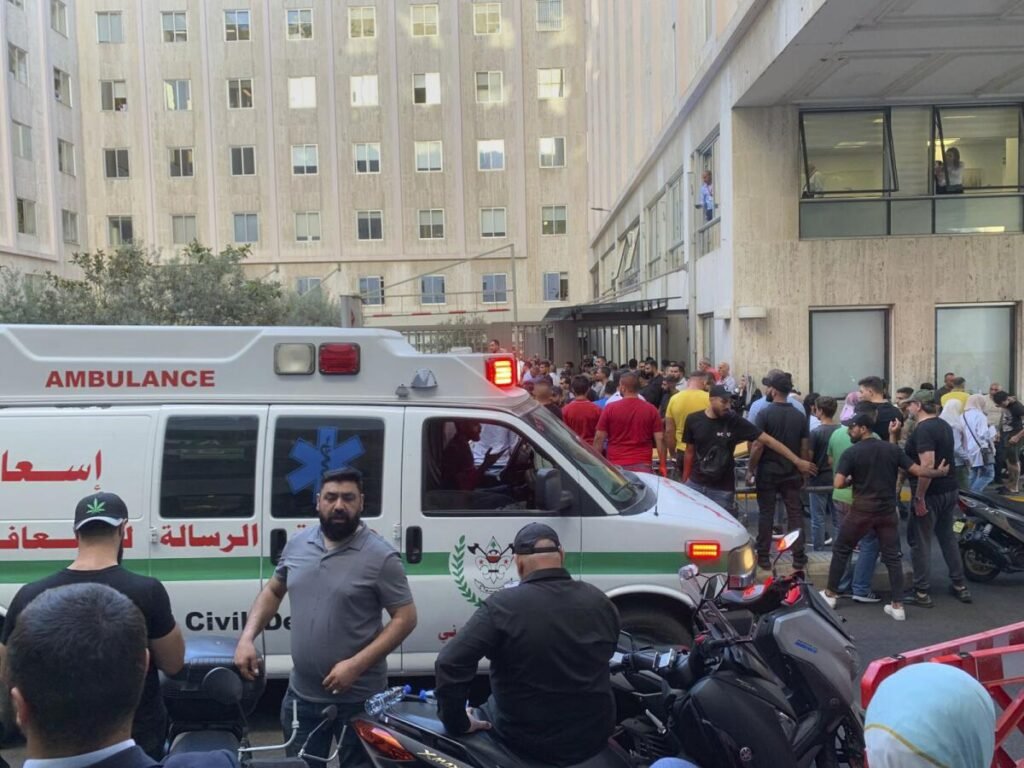| In Short |
| · Israel has allegedly carried out sophisticated attacks targeting Hezbollah’s communication devices, such as pagers and walkie-talkies, causing multiple explosions and killing dozens |
| · The attacks mark a shift in tactics, focusing on crippling Hezbollah’s communication infrastructure rather than direct military engagement |
| · Over 60,000 Israelis have been evacuated from the northern border as tensions rise between Hezbollah and Israel |
| · Hezbollah has condemned the attacks as a “criminal aggression” and has vowed retaliation, escalating fears of a larger conflict |
| · International leaders, including the UN and regional powers, have called for restraint to prevent further escalation into a broader Middle East conflict |
Israel and Hezbollah now stand on the brink of a greater war, the result of the two days of coordinated blasts sowing havoc in Hezbollah’s communications hardware in Lebanon and Syria, killing dozens and injuring thousands, in a high-tech attack reportedly launched by Israel that has shot up tensions. As the conflict continues to play out, its actions using exploding pagers and walkie-talkies brought international focus to a conflict that seems not to dwindle anytime soon.
Israel Unleashes a New Phase in War
It has just reached a new stage on September 17, 2024, to the conflict between Israel and Hezbollah with an unprecedented attack. Thousands of handheld pagers used by Hezbollah for communications burst simultaneously across Lebanon and Syria, causing heavy casualties. The next day, the blasts continued to strike walkie-talkies, further blurring Hezbollah’s operations. This new tactic, believed to be carried out by Israel’s intelligence agency, Mossad, lends credibility to a shift in the long tradition of military strikes from more conventional and overt attacks to more covert and accurate forms of targeting Hezbollah’s infrastructure.

Israeli Defense Minister Yoav Gallant said that the attacks were part of a “new phase of war” targeting the country’s northern borders. This was communicated at a time when over 60,000 residents of Israeli towns near the Lebanon border had been evacuated. Netanyahu and his officials have not directly accepted responsibility for the pager and walkie-talkie attacks but the statements by the Prime Minister point towards heavily basing their efforts on weakening Hezbollah’s capabilities in Lebanon.
Hezbollah Vulnerabilities Exposed
The blast highlights Hezbollah’s vulnerably to obsolete technologies such as pagers and walkie-talkies. Notorious for ages for their military and clandestine operations, Hezbollah is known to have used non-digital ways of communications in order not to be intercepted by the intelligence wing of Israel. But the latest round of attacks made it possible for the analysts to indicate the fact that nothing is truly outside the spying and sabotage reach of Israel. Giving response to the attack, Hezbollah labeled the strikes as a “criminal aggression” and promised retaliation

Hezbollah’s leader, Hassan Nasrallah, has not released a public statement, but the organization’s early responses suggest they are taking this security breach very seriously. The assault is likely to force Hezbollah to review its communications and may accelerate the adoption of more secure, encrypted communication networks.
The Role of Technology in Modern Warfare
Targeting Hezbollah’s communication devices marks a new point in the application of technology in modern warfare. Unlike the traditional airstrike, or invading land positions, these attacks strike undetected at the very heart of an organization’s ability to coordinate and command forces. The Israeli strategy to attack Hezbollah’s means of communication has been labeled as a section of a more extensive plan to destroy the infrastructural military arrangement for the group to guarantee future offensives against Israel.
According to other military analysts, this kind of attack has global implications. The sabotage of essential communication tools by Israel shows its skills in uprooting Hezbollah’s operations without a direct type of battle, thus reducing the possibility of retaliations promptly. Nevertheless, this attack kind also threatens to create further extension of the conflict by pushing Hezbollah to the corner, which may respond in the same manner.
International Reactions and Rising Concerns
To date, the rest of the world has expressed alarm at the intensification, while calling for restraint on both sides. If the conflict is not contained, as the United Nations warned, it will easily turn into a wider regional war. Both Israel and Hezbollah need to refrain from further provoking each other, UN Secretary-General Antonio Guterres said. Other countries like Egypt and Turkey have aired their concerns over broader instability in the Middle East.
Iran, Hezbollah’s chief financier, condemned the attack and accused Israel of an invasion of Lebanon. Iranian President Masoud Pezeshkian expressed his sorrow at the hijacking of civilian technologies to be used for military purposes, while the Lebanese government demanded an international investigation of the attack. Tensions in the area are running high as the U.S. has condemned the attack and labeled it an infringement of Israeli’s sovereignty. Secretary of State Antony Blinken said that the U.S. had no prior knowledge or involvement in the attack.
A Prelude to Further Conflict?
Latest attacks confirm this new shift in the broader geography of the Middle East, especially as Israel and Hezbollah continue their long-standing rivalry. Hezbollah has vowed to retaliate, and Israel is fortifying its northern defenses. The regional situation thus teeters at the edge of further escalation while the risks are higher than ever that this new phase of conflict will be a full-scale war or bequeathed to the constraints of limited strikes.
Israel may have set a precedent for any future conflict: technology may become the battleground. In the meantime, the world is watching as the escalations between Israel and Hezbollah spill out, with the hope that the desired help will come in the way of more political and diplomatic efforts to avoid more death.
For Latest News Updates, Click Here.
